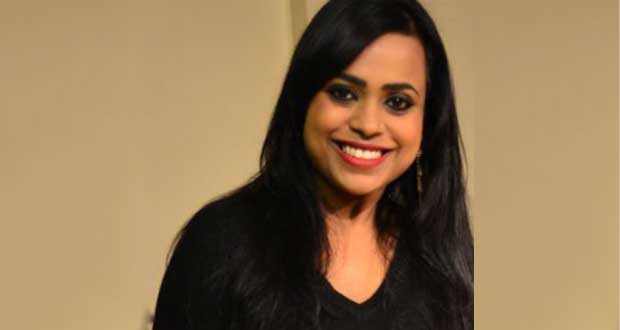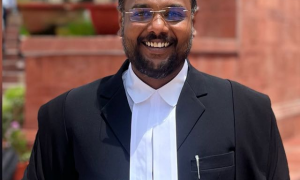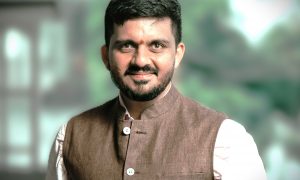Rakhi Mohanty graduated with a B.A.LLB (Hons) degree from NLIU, Bhopal in 2010.She then went on to litigate in the Supreme Court and later worked with a law firm based in Delhi. She is currently pursuing her Masters in Commercial Law from the London School of Economics.
In this interview, Rakhi talks about:
- How to choose internships while in law school
- Litigation in India and its future
- Pursuing LLM’s in avant-garde institutions and gruelling academic schedules
- Academic research in foreign universities
Please introduce yourself to the readers. Tell us a little about your childhood and your background.
My name is Rakhi Mohanty and I recently completed my Masters at the London School of Economics and Political Science in Commercial Laws. I am an alumni of National Law Institute University. I come from Bhubaneswar where my father is a succesful enterpreneur and my mother has taken the daunting task of looking after the family and holding us all together. Given the lack of all-round facilities in schools at Bhubaneswar, in terms of extra-curricular activities, sports etc which are essential for a healthy childhood thanks to my parents, took the decision to give my sister and me an opportunity to study at one of the best boarding schools of the country, the Lawrence School, Lovedale, which was our first step to leading independent lives as individuals. My younger sister who has recently completed her Masters at Oxford University.
When did you decide to take up law as a career? Tell us something about your college life. Being a law student, were you only focused on academics? How was the academic pressure?
I once had an ex-student visit my school and give a talk on the career attributes of the legal profession and that is very time since when my fixation with the area begun. I was completely taken in by the eloquent manner and by the comprehensive and persuasive power of the speech. As I grew up and kept myself more updated with the day-to-day news from over the world over, I noticed a common pattern of most of the prominent leaders and personalities over the world sharing a common factor of law between them. I would be lying if I say that the John Grisham novels, in their glamorous projection of lawyers, did not play a major role in my decision-making. Luckily for me, I had the privilege of committing to the career at a time of National Law Schools and law firms, which were offering some of the most promising remunerations making it one of the most rewarding professions. By the time I set my foot into the professional arena, career in law had begun to being considered as one of the most promising careers for a young individual looking for a dynamic and successful life. NLIU provided me with the much needed break in terms of a rigorous five year program which helps a student get a taste of the various subjects that law as a discpline has to offer. We had a trimester system which kept us on our toes as we had exams and project presentations every few months. Having said that, NLIU provided a student with a wide arena of extra curriculars as well which would help one in an all round development as a professional.
You’ve interned at think-tanks like the Citizen Consumer and Civic Action Group. How instrumental were these internships in helping you decide what field of law you wished to specialize in?
I think the think tanks that I did intern for, provided me with an opportunity to see aspects of life, not necessarily as a lawyer but as a a citizen, working for the betterment and efficency of the society that we live in. To be entirely honest, I enjoyed my work thoroughly and saw a side to law which requires an amount of sheer grid and determination to go on working effortlessly for the cause of others and for social well-being. They provided me with a wide area of subjects to work under such as environmental law, constitutional law etc. Having said that, as a lawyer, I feel, that one needs to find their specific area of interest to which they are willing to dedicate the next 40-50 years of their lives, working 13-14 hours each day. I found my calling in commercial laws and I am glad that before I branched out to this specific area, I got an opportunity to work and get a gist of the different branches of law, which I may never again get an opportunity to work in from here on.
After your graduation, you worked in the Supreme Court. What is the reality of litigation in India? Do you think that the effort that is put into litigation does see fruition in all cases or the field of litigation is an overrated career option?
To be honest, working in the Supreme Court first as a law clerk and then as a lawyer was one of the most defining moments of my career. I got to see the law being exercised from both sides, from the bench and from the other end, the bar. At one point of time I got to work on various judgments and be a part of the evolution of the law and later on, as a lawyer, I was working on the arguments for a case to be presented before the court. Having been asked about litigation, I would be able to explain litigation if I draw an analogy by saying that lttigation is more like running a long distance marathon. It happens at a slower pace, one needs to build up a momentum and gather the stamina, the more one practises the better they get at it and it takes a while to reach the finishing line but there is nothing quite like it. If somebody wants to litigate and feel passionately for it, they should be ready to put in the required dedication for a certain period of time and avoid feeling let down by minor setbacks. However, I think the legal profession demands one’s full time and undeterred time and attention to succeed and to be right at the top. The reality of litigation in India can be very disappointing at times, but to be honest, there is quite a high when you get argue before a bench or are applauded by the bench for presenting a case well or finishing a matter by yourself. However, I personally feel that it could only happen if one pursues something which they feel passionately for and do not feel the heat of long hours and that of a strenuous work life. I tend to be quite impatient as a person and get easily hassled by long bureaucratic processes and felt that I would not be good at litigation. I needed to find something which I could take forward and feel passionately about and that happened for me in the form of competition law.
You completed your Masters from the London School of Economics. At what point did you decide to pursue your Masters? What was your motivation?
I had decided from the very beginning that I would pursue my Masters after putting in a couple of years of work so as to be able decide as to what I want to specialise in. I stuck to my plan and after having worked for one year in the Supreme Court and then for another two years as a litigating lawyer, I decided to apply for my Masters and pursue a degree in Commercial Laws. The motivation was excellence. I did not want to slip into mediocricy and that could have only happened if I had the clarity and knowledge, which could be acquired with a Masters program.
How different is the style of teaching at LSE? Do they focus more on the practical aspects of the law as compared to the NLUs?
The teaching at LSE was extremely different from that what I had experienced at NLIU. At LSE, the students are expected to finish their readings, research and be well-prepared before a class. During the class, one is expected to voice your opinion and it is more of a discussion and sharing of opinions between the professors and the students instead of a scenario where professors are expected to spoon feed the students. In my opinion, the teaching methodolgy in the universities abroad is far superior to what we have in India as one is compelled to think out of the box, start training their mind as a professional and most importantly, it teaches you to be responsible towards your degree. The whole point of such a methodolgy of teaching is to make sure that students not only study the law as a subject but in the process learn its applications and be able to clear their notions on its implications. Having said that, one cannot forget that the degree that I attained at NLIU was an undergraduate one, which introduced me to the profession, whereas, I entered LSE as a professional, attaining a Masters degree and in the process had to a certain stature and sophistication to my work. It is only fair as to at which point, which university expected what level of work from me.
How did you choose LSE over other colleges? What was the decisive factor?
I liked the LL.M program that LSE had to offer and the wide array of subjects to choose from. What not a lot of people are aware of is that the LL.M program at the LSE is one of the intensive and prestigious programs that the University has to offer. Further, LSE offers you that one opportunity to experience life in London, the epicentre of world economy and commercial laws. I think what a lot of people do not understand is that Masters is not just about the course you study but should have the ability to motivate, make you push your limits and not only change your perception of your life but also be a game-changer for your career. LSE and London did just that for me.
What is your view on the latest trend among law students to pursue Masters abroad? How much of a brain drain do you think this is?
In my opinion, pursuing one’s Maters abroad is not a brain drain at all. Pursuing Masters abroad gives a student a much wider perspective of the world at large and provides the much needed incites to bring in a certain level of sophistication to their work and thought process which could be put to much better use even if one decides to head back home and pursue their career in India. I feel Masters abroad is only as much a brain drain as it would be in various scenarios where lawyers working in India decide to settle abroad at some point of time in their lives for various miscellaneous reasons.
In your opinion, do you think the NLU’s are conducive to academic research on a level that law schools abroad are? What is the future of NLUs?
I feel that the compulsory requirement for academic research, which is in form of projects etc, that is being conducted by the NLUs is more of a technicality on paper rather than it being something which is actually effective and productive. I think we need to contemplate the level/standard of academic research that is being produced in the NLUs . In my experience abroad, the research work is taken extremely seriously whereby each student is appointed a supervisor who guides and provides incites into the research over the span of time so as to be able to produce something substantial and at the same time mentors the student for better research and drafting skills in terms of academic writing which leads to more international publications and referencing. In my opinion, NLUs need to put in more thought when it comes to academic research when it comes to competing with the world class universities abroad.
What are your plans after completing your Masters?
I intend to work in a reputed Competition Law/Antitrust team. I am currently exploring job opportunities in Europe as well India and given the global nature of the subject, I intend to appear for the QLTS or NY Bar exams in the due course of time so as to be able to have a multi-jurisdictional advantage to be able to make my mark as a Competition Law expert across the globe.
For the benefit of the law students, kindly share some experiences of starting up with a law firm. Students are trying to gather various internship experiences at different places. Do you think internships help a law student?
I think internships are extremely important when one is pursuing their LL.B. However, what I have learnt from my experience is that, it isn’t important to intern in various number of places but to pick one place which one feels is the best choice for them and to intern there a number of times so as to be able to exhibit their skills in that particular organization. When the time comes for recruitment, a firm or organization tends to prioritise a former intern or recalls that person’s good work over a completely fresh face. I would advice that handpick a couple of places and try to put in your best work there so that the organization either offers you a PPO or prioritises your joining in campus placements. The students should be aware of the reality that working in a law firm is not the easiest ways of life. One would be required to put in their complete time and dedication so as to be able to make a mark in a workplace.
What would be your parting message to the law students?
I would urge all budding law students to think out of the box and have the conviction to stand by their career choices, be it being that of a corporate lawyer or that of an environmentalist. We are living in a time and age when doing anything can bring you success, provided you excel in it. It is important the future talent prioritises excellence over being a part of mediocrity.


























